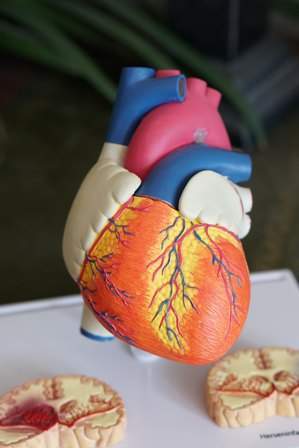VisCardia, a privately held medical device developer, has announced the first implant of the VisONE implantable system for heart failure, and the commencement of its VisONE Heart Failure pilot study in Ukraine.

Image: VisCardia has announced the first implant of VisONE implantable system for heart failure. Photo: courtesy of Robina Weermeijer / Unsplash.
The VisONE implantable system delivers VisCardia’s proprietary Asymptomatic Diaphragmatic Stimulation (ADS) therapy to improve cardiac function.
By electrically stimulating the diaphragm in an asymptomatic manner, transient intrathoracic pressures gaited to cardiac activity are applied against the cardiac walls, improving both cardiac filling and output.
“Our preclinical and early feasibility studies demonstrated ADS improves acute hemodynamic parameters and chronic left ventricular ejection fraction, while remaining asymptomatic and with no adverse effects. With our newly developed implantable VisONE system, we intend to demonstrate ADS benefits the majority of moderate heart failure patients with reduced ejection fraction,” said Peter Bauer, VisCardia’s President and CEO.
“During this 12-month pilot study, we are optimistic VisONE will deliver comparable benefits as those observed during our ADS feasibility studies,” said Paul Erne, M.D., Professor Emeritus of Cardiology at the University Hospital of Basel and former Head of Cardiology at the Kantonsspital of Lucerne, Switzerland.
The implant took place at the Heart Institute, Kyiv, Ukraine, under the leadership of Institute Director Professor Borys Todurov, M.D., Ph.D., and Principal Investigator Dr. Vitaliy Demyanchuk, M.D., Ph.D. The patient, a 53-year-old male with a reduced ejection fraction of 17%, remained in symptomatic heart failure despite an optimally titrated medical regimen, and had no alternative treatment options.
General Surgeon Dr. Oleksandr Plehutsa, M.D., Ph.D., who performed the laparoscopic implant, stated, “The practicality and expediency of this novel and minimally invasive approach reduces critical anesthesia times for this delicate heart failure population, enabling a quicker recovery versus established medical device therapies.”
Furthermore, Dr. Todurov added, “We are excited at the potential of this therapy to address a significant gap in clinical care. Our center will be actively and methodically studying its impact on heart failure.”
Echocardiographic data will be analyzed at the University Hospital of Zurich under the direction of Professor Felix Tanner, M.D., with statistical analysis performed at the Robertson Centre for Biostatistics in Glasgow under the guidance of Professor John Cleland, M.D. Michael Mirro, M.D., VisCardia’s Director of Medical Affairs, commented, “Given the promising evidence to date, it is exciting to see two recognized groups engaged in studying this new therapy with the proper clinical rigor of a multicenter study used by prominent heart centers.”
ADS therapy utilizes a medical device with electrodes, implanted using a minimally invasive laparoscopic surgical procedure, to deliver electrical pulses to precise areas of the diaphragm.
The therapy is non-invasively adjusted and programmed using an external programmer to improve hemodynamic benefit and eliminate undesired stimulatory side effects.
Source: Company Press Release
